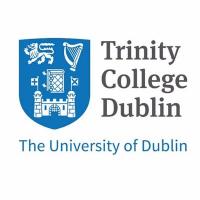International History (M.Phil.)
The M. Phil course in International History offers students the chance to pursue historical research outside the boundaries of the nation-state. Students will be trained in transnational, comparative, and international approaches to history and have the opportunity to study foreign languages, cultures, and societies. Possible topics of focus include the movement of culture, people, and ideas across national boundaries and issues such as imperialism, globalization, social movements, and the roots of international war and conflict. Throughout the course, students will be encouraged to reflect on the historical roots of current issues that cross national boundaries such as the refugee crisis, the spread of radical politics, security and intelligence services, the international economy, and other critical issues to prepare for careers in areas such as global politics, NGOs, journalism, or for further postgraduate study.
The course consists of seven modules. The two mandatory modules include a year-long, core module on International History: Methods and Themes and an International History Research Seminar in which students will hear guest speakers who are leaders in their field. Three elective modules can be selected from a wide range of specialties, including continental European, Irish, Chinese, U.S., and environmental history. For their fifth module, students can choose either a foreign language (from French, Spanish, Russian, German, Polish, Italian, or Chinese -depending on availability of staff) or an additional module in International History Methods. The final module is the capstone project, a dissertation based on independent research on a topic in international history, individually supervised by a member of staff.
Intakes
- Jan
- Sep
Application Processing Time in Days: 30
Minimum English Language Requirements
| English Level Description | IELTS (1.0 -9.0) | TOEFL IBT (0-120) | TOEFL CBT (0-300) | PTE (10-90) | |
|---|---|---|---|---|---|
| Expert | 9 | 120 | 297-300 | 86-90 | |
| Very Good | 8.5 | 115-119 | 280-293 | 83-86 | |
| Very Good | 8 | 110-114 | 270-280 | 79-83 | |
| Good | 7.5 | 102-109 | 253-267 | 73-79 | |
| Good | 7 | 94-101 | 240-253 | 65-73 | |
| Competent | 6.5 | 79-93 | 213-233 | 58-65 | |
| Competent | 6 | 60-78 | 170-210 | 50-58 | |
| Modest | 5.5 | 46-59 | 133-210 | 43-50 | |
| Modest | 5 | 35-45 | 107-133 | 36-43 | |
| Limited | 4 | 32-34 | 97-103 | 30-36 | |
| Extremely Limited | < 4 | < 31 | < 93 | < 30 |
Job Opportunity Potential
If you are an international student studying at Trinity, you might be considering internship and graduate work in Ireland, in your home country, or elsewhere. This section provides information for Non EU students on working in Ireland during and after your studies. For information and resources to support an international job search, see our Devex resource which includes international job search advice and information.
Employers value candidates who have more to offer than a good degree with high grades. They look for students who are well rounded and who have experience outside the classroom. Search for and take advantage of opportunities to gain experience, develop your skill set, and gain a clearer picture of what you like and don't like in terms of career options.
For example, you can get involved in some of the many student clubs and societies in college, volunteer or get a part time job. Remember that voluntary work is as valuable as paid work on your CV or resume - it's a great way to demonstrate your skills to future employers. Have a look at the TCD Civic Engagement website and check out volunteering opportunities in Ireland and abroad.
PSW Opportunity
- 2 Years
Admission Requirement / Eligibility Criteria
Postgraduate Admission Requirements
Postgraduate work in Trinity is academically challenging and the University has high academic entry requirements.
Applicants will need to:
hold at least a 2.1 honors degree from an Irish university or equivalent result from a university in another country.
display a high level of competence in the English language in one of the examination systems recognised by Trinity College Dublin.
To qualify for admission to a degree course at the University you must meet the requirements outlined above. For more information on what you must include in your application, please see our detailed guide on Making an Application.
Postgraduate English Language Requirements
All applicants whose first language is not English and who have not been educated through the medium of English must present one of the following qualifications in the English language:
IELTS (Academic version) and IELTS Indicator : Grade 6.5 overall.
TOEFL and TOEFL iBT Special Home Edition: 88 internet-based, 570 paper-based, 230 computer-based.
University of Cambridge:
Proficiency Certificate, Grade C or better (CEFR Level C1 or C2)
Advanced Certificate, Grade C or better (CEFR Level C1 or C2)
Pearson Test of English (Academic) - PTE Academic: a minimum score of 63 to be eligible (with no section score below 59)
Duolingo English Test: minimum overall score of 120/160 with no section below 105, dated since January 2020
An award certificate with a minimum II.1 overall score from Trinity's Centre for English Language Learning and Teaching's Pre-Master's Pathway Programme. The Pre-Master’s Pathway Programme is an academic English course for international students with conditional offers for postgraduate study at Trinity. Passing the programme means you meet Trinity’s English language requirement and can progress to your postgraduate course without retaking IELTS or any other exam.
Please also note that existing IELTS, TOEFL, Cambridge and PET scores up to two years old will be accepted for 2023/24 applications in light of test centre closures.
- Course Type: Full Time
- Course Level: Masters/PG Degree
- Duration: 01 Year
-
Total Tuition Fee:
16930 EUR
Average Cost of Living: 10500 EUR /year
Application Fee: 55 EUR
Similar Programs
- Middle East in a Global Context (M.Phil.) at Trinity College Dublin
- History of Art and Architecture (M.Phil) at Trinity College Dublin
- Digital Humanities and Culture (M.Phil.) at Trinity College Dublin
- Childrens Literature (M.Phil) at Trinity College Dublin
- Applied Intercultural Communications (M.Phil) at Trinity College Dublin
- Race, Ethnicity, Conflict (M.Phil.) at Trinity College Dublin

